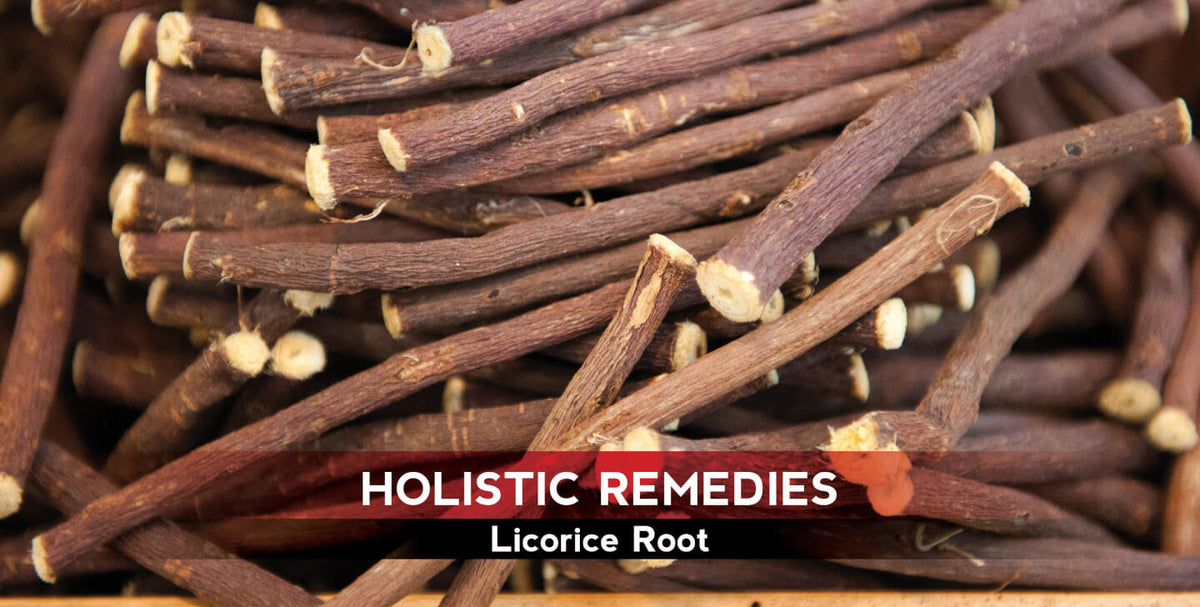Licorice Root Benefits: The Natural Stomach Soother

For centuries, licorice has been used to treat stomach inflammation and upper respiratory problems. The supplement is harvested from the plants’ roots and underground stems (and no, it has nothing to do with Twizzlers). It’s native to the Mediterranean, Russia, and Iran. Read on to learn more about licorice root benefits and how to properly (and safely) use it.
Related: Kombucha: Food of the Week
Licorice Root Benefits — Soothe Your Stomach Ache
The Evidence
Chemicals in licorice seem to quell swelling, thin out mucus, and increase the body’s natural ability to heal ulcers. Large-scale research on the herb is scant (as is often the case with herbal treatments), but natural health practitioners say it works well for digestive problems, such as heartburn, ulcers, colic, and chronic gastritis (inflammation of the stomach lining)—not to mention bacterial and viral infections (for which your biggest complaints come down to the body’s inflammatory, or swelling, response). “I use it alone or in many combination products for gastroesophageal reflux and dyspepsia,” says Sezelle Gereau, M.D., an integrative ear, nose, and throat doctor at the Blum Center for Health in Rye Brook, NY. “I frequently recommend it alone or with other herbs for its soothing properties on the GI tract.”
The sweet herb shows up in toothpaste, but studies on the extract’s effect on cavities and mouth ulcers is mixed. Licorice root also shows up in natural shampoos; it helps calm an oily scalp.
Related: Holy Basil Health Benefits: The Immune Booster
How to Use It
If you’re taking it to soothe digestive concerns, time it right: “I recommend it be used just prior to meals so that it has an opportunity to coat the stomach and esophagus before you start eating,” Dr. Gereau says. “It can also be taken safely at bedtime for nighttime reflux episodes.” A daily dose typically ranges from 2 to 15 grams. If you take huge doses for a long time, licorice root can cause high blood pressure and can lead to low potassium levels—a problem linked with heart and muscle problems. So talk to your doctor if you’re thinking about hitting the licorice root hard.




